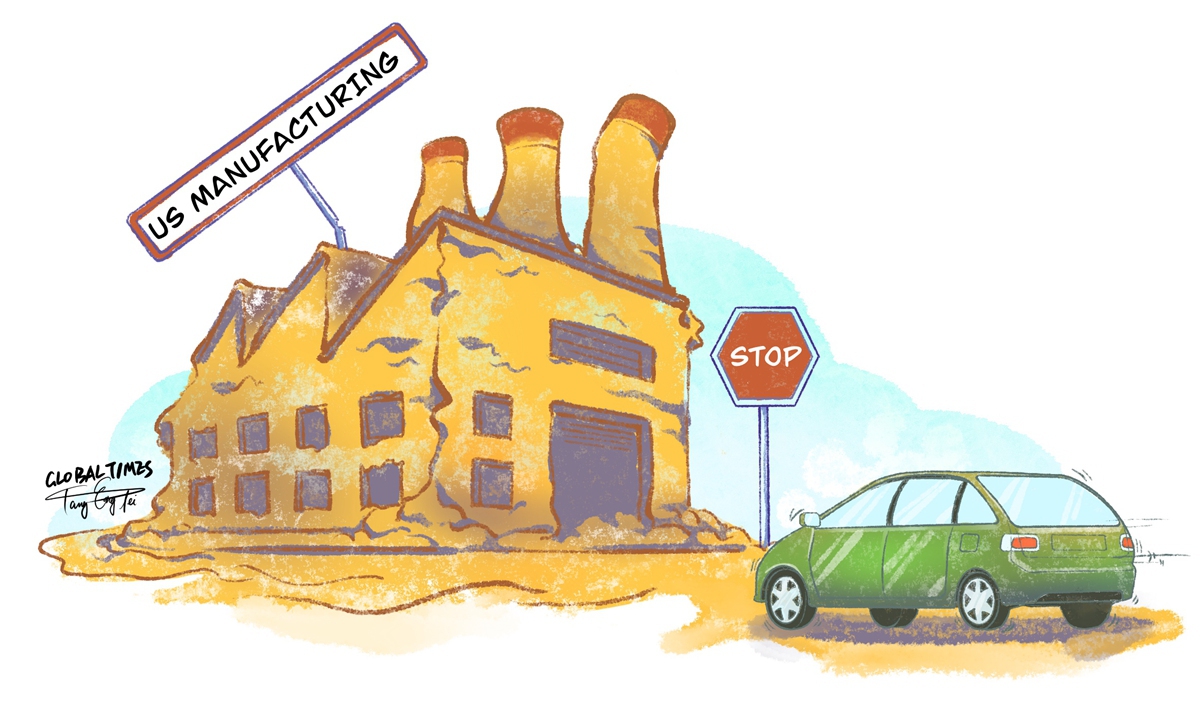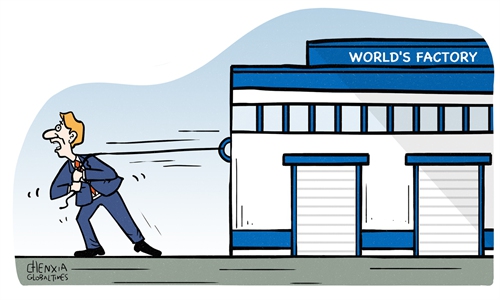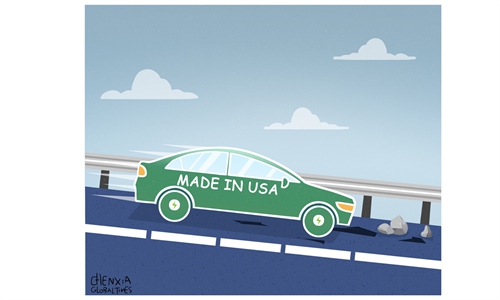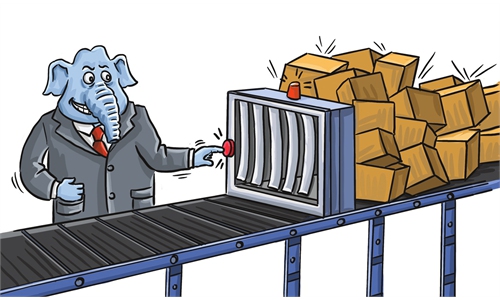
Illustration: Tang Tengfei/GT
While the Biden administration is trying to bring manufacturing prosperity back to the US, the irony is that the country is in a storm of de-industrialization, as a convergence of historically high inflation, tight job markets, accelerating technological progress and public support for unions has jointly led to frequent large-scale strikes."Bidenomics" is characterized by a significant increase in government expenditure to support economic performance. However, this approach will significantly raise inflation expectations and the federal deficit. Critics argue that the emphasis on economic nationalism and manufacturing as reflected in "Bidenomics" may exacerbate inflation risks, ultimately offsetting any wage growth and causing difficulties for Americans.
The strike by the United Auto Workers (UAW) against Detroit's Big Three automakers - General Motors, Ford and Stellantis - remained at a standoff on Wednesday, with few signs of significant progress but more signs of escalation.
Rejecting the UAW's demands that include a 40 percent pay hike, a 32-hour work week and an end to a tiered wage structure, the Big Three automakers started to lay off workers. GM said on Wednesday it idled a manufacturing plant in the state of Kansas and laid off most of the approximately 2,000 people working there. It claimed that there is no work for most of the people at the Fairfax assembly plant because workers at another GM facility went on strike last Friday.
Job cuts were also announced by Stellantis, laying off 68 workers in the state of Ohio, and possibly another 300 in the state of Indiana. Ford also laid off 600 employees in Wayne, Michigan.
For the Big Three automakers, which are at a critical junction of transitioning toward electric vehicles amid fierce competition, the UAW's demands may be simply too much to accept. But from another perspective, the union's demands showed the hardship caused by US inflation to manufacturing workers and also that the Biden administration's efforts to promote manufacturing reshoring simply didn't improve the lives of industrial workers.
It is true that the Biden administration has been actively investing in and subsidizing the domestic electric vehicle industry, encouraging companies to source key materials within its borders and attracting manufacturing back, but the UAW strike may show why the US government's efforts may not be suitable for Americans and point to the ongoing de-industrialization trend in the US.
One of the results of protectionist US measures aimed at boosting local manufacturing is high inflation, which has led workers to demand higher wages. According to The Guardian, over the past 20 years, the average wage for American autoworkers fell by 30 percent after adjusting for inflation, meaning that autoworkers at the Big Three are earning less today than they did 15 years ago.
Yet, if automakers accept the UAW's demands, then rising costs will push up car prices, further stoking inflation, leading to more pay rise demands and strikes. So if automakers increase wages, then the pay rise demand will spread to other manufacturing industries. Higher labor costs that undermine manufacturing competitiveness may prompt manufacturers to move factories to other countries, puncturing the dream of a return of American manufacturing.
The big strike is not only happening to the US auto industry. There have been more big strikes affecting 1,000 workers or more in the US this year than ever before. There were 16 big ones in the first seven months of this year, up from 11 in the same period in 2022 and the most since 2005, according to an article from The Economist. Moreover, Hollywood writers and actors are in a months-long standoff with studios.
In the meantime, technological advances threaten jobs. Rapid development of artificial intelligence and robotics means that expensive labor will be replaced by machines, and the strikes will only accelerate the replacement.
For those industries that still need workers, higher labor costs will force companies to expand capacity overseas. Strikes in the US will only aggravate the problems of US manufacturing and accelerate its de-industrialization process.




